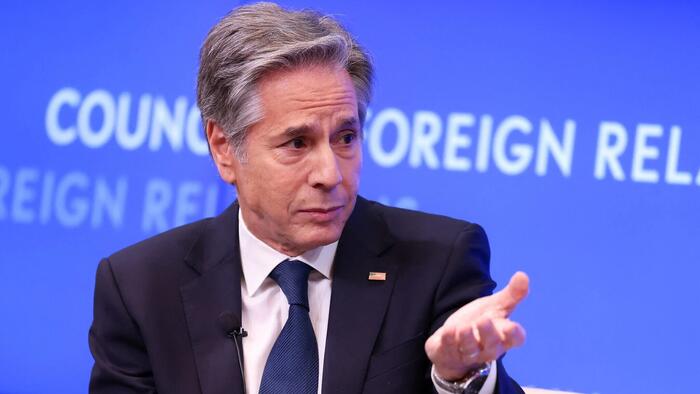As the Trump administration prepares to take over the White House, Secretary of State Antony Blinken delivered revealing remarks during a Council on Foreign Relations event regarding U.S. policy toward Iran. His comments signify a notable shift in Washington’s narrative, stemming from a candid acknowledgment of the ineffectiveness of U.S. regime change efforts over the past two decades. In a rare admission for a top official still in office, Blinken reflected on America’s history in the Middle East, particularly its endeavors to effectuate regime change. His remarks were particularly striking given the ongoing complexities in the region, where U.S. attempts have frequently not met with success, leading to a longstanding legacy of instability.
Blinken pointedly noted that the historical failures of U.S. interventions demand a more humble approach in addressing current challenges in Iran. While discussing the potential for supporting Iranian opposition groups in their efforts to dethrone the government, he emphasized the necessity of recognizing the limitations of past actions. “I think if we look at the last 20 years, our experiments in regime change have not exactly been resounding successes,” he stated, indicating a clear shift in rhetoric from aggressive interventionism to a more cautious diplomatic approach. This reflection encapsulates a broader understanding of the region’s complexities and emphasizes a more thoughtful strategy might be required, diverging from the confrontational stances seen in previous administrations.
On the subject of Iran’s domestic situation, Blinken pointed out that the Iranian leadership is at a critical juncture, with “fundamental” choices to make about the country’s future. He suggested that Iran could choose to focus its efforts on national development rather than regional conflicts, hinting at a potential pathway for constructive dialogue. This assertion is significant in that it frames Iran’s potential for change as a decision that rests with its leaders. The Secretary’s insistence on prioritizing the welfare of the Iranian people over regional ambitions reflects a pragmatic acknowledgment of the socio-economic challenges Iran currently faces. He expressed hope that Iranian authorities would shift their focus, a signal that the U.S. is keen on seeing Iran engage more positively with its own populace.
International media outlets, particularly those in Russia and China, seized upon Blinken’s comments, interpreting his acknowledgments as a validation of their long-held criticisms of U.S. foreign policy. Russian state media emphasized the failure of U.S. regime-change efforts, framing it as a significant policy admission that showcases the challenges inherent in past interventions. Similarly, Chinese reports echoed this sentiment, reiterating the perceived failures of U.S. initiatives over the past twenty years, portraying them as counterproductive to regional stability. These interpretations underscore the importance of Blinken’s remarks, not just in an American context, but in how they resonate in the global arena, where geopolitical narratives are continuously crafted and contested.
While highlighting the failures of regime change, Blinken also addressed concerns surrounding Iran’s nuclear ambitions. He suggested that the pathway to nuclear capabilities was “not inevitable,” citing the diminishing resources and strategies available to Iran. His comments implied a cautious optimism regarding the possibility of curtailing Iran’s nuclear pursuits, framing it as an issue where the costs of further escalation would outweigh any potential benefits. He mentioned that Iran might reconsider its nuclear strategy in light of its current challenges, indicating that a confluence of internal factors could influence Tehran’s decision-making processes regarding nuclear development. This focus on deterrence framed within the context of economic and diplomatic consequences presents a nuanced perspective on nuclear negotiations.
Ultimately, Blinken’s remarks highlight a significant moment for U.S. foreign policy regarding Iran, suggesting a pivot away from aggressive regime change toward a strategy that seeks engagement. His warnings to Iranian leadership about the necessity of reforming their approach is indicative of an effort to carve a diplomatic path in a historically fraught relationship. By recognizing past policy failures, the Biden administration may be signaling a desire to forge a new framework for dealing with longstanding adversaries, balancing deterrence with the possibility of dialogue. As the new administration settles in, these insights from Blinken provide critical context and set the stage for future U.S.-Iran relations and broader Middle Eastern diplomacy, where the stakes remain high and the lessons of the past must shape the strategies of the future.

